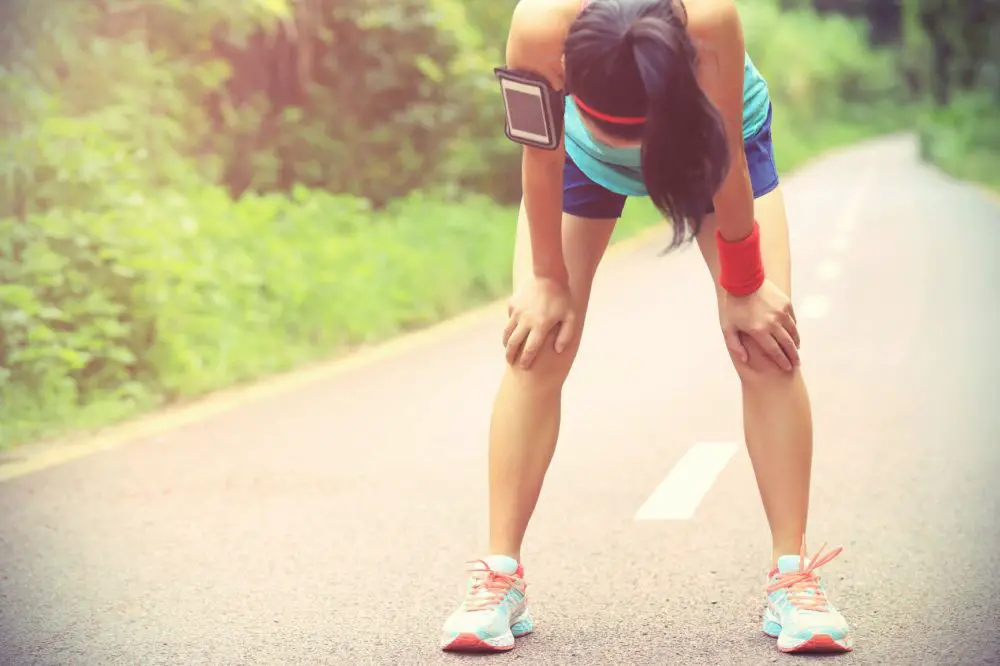Most runners will have gotten to a point somewhere throughout their journey where every step feels like your legs are being weighed down to the ground and no matter how much or how little you run, you just feel like your legs are too heavy to carry with you.
A good run can often be the best feeling in the world at times, but when your legs are heavy and tired, there is nothing worse than this feeling, especially when you feel motivated to get going.

Not every run is going to be your best, and there are going to be times where things like this can happen. Sometimes, your legs will get tired and weak, and this can happen due to a variety of different reasons.
Unfortunately, there is no one-solution to this problem, as it would depend on what the cause of it is. However, if this is happening to you, then there are some things that you can try to fix the problem.
Many of these solutions are simple and easy to do, and hopefully, you will be back to running free in no time.
Why Are My Legs Heavy and Tired When Running?
The reason why your legs are so tired and heavy-feeling when you are running could be due to a variety of different reasons.
Some of these can include forgetting to stretch before you run, wearing the wrong shoes, not giving yourself enough of a break, and even dehydration.
We are going to walk you through some of the solutions to these problems below, so you can get back to feeling ready for your next running adventure.
How to Avoid Heavy and Tired Legs When Running
Now that you know what some of the main causes of heavy and tired legs are when running, we can start to get to the bottom of the problem.
There are a few different things that you can do to avoid this issue, or to solve it when it does occur.
Give Yourself A Break
Have you ever gotten to the point that you’ve been running so often or for so long that your legs won’t carry you another step? This is because you are overdoing it, and your body is trying to signal that it is in dire need of a break.
Even if you don’t want to stop, doing so can be really beneficial and help you make better progress the next time you go out. Taking a break and being defeated are not the same thing, and just because your body needs a time-out, it does not mean that you are giving up. You simply need to allow your body to catch up with you in order to continue.
Try not to run more than your body can handle, as it is perfectly alright to call it a day when you feel like you can’t continue. Sometimes, pushing on can do more harm than good, and when you find yourself in this situation you should give yourself time to rest and recover.
You could also try to switch things up a bit in your free time to help your body unwind. This could involve taking up another hobby like swimming or yoga, and these are both great ways to help your body unwind.
Wear the Right Shoes
The type of shoes that you are wearing can really make a difference to your running, and interestingly, if your running shoes don’t have enough tread or slick, then it can lead to an inability to strike the ground properly.
This can then cause a loss of momentum that can make your legs feel more tired than they need to.
If you are really serious about running, then you should consider buying yourself a good pair of running shoes to help you along your journey. There are plenty of running and fitness shops around that you can go to, or you can even have a look online.
Another reason that your shoes could be having a negative impact is if they are really worn out. It is recommended that you change your running shoes every 300 to 400 miles so that they can do their job properly.
Stay Hydrated
If you are dehydrated, it can cause fatigue when you are out for a run, which can make it feel like your legs are heavy. Keeping hydrated is really important, especially during long runs, as you are going to lose fluid through sweating.
You need to replace this by drinking water, and otherwise, your body has to work much harder to pump blood around your body. This can make your legs feel more tired than usual, and make the overall run much more difficult.
If you are thirsty, make sure that you are drinking. You can also set a reminder to tell you to drink at certain intervals if you are quite forgetful. Always take plenty of water with you on your runs for when you need it, especially if it is warmer outside.
- How Many Calories Do You Burn Running a Marathon? - May 13, 2021
- Should You Run On An Empty Stomach? - May 12, 2021
- Which Exercise Is Best for Lungs? - May 11, 2021
